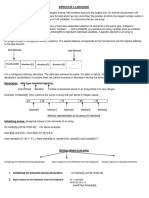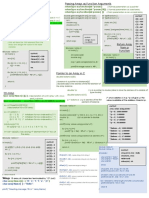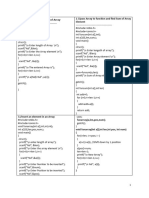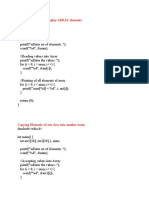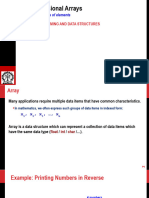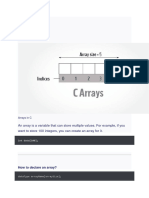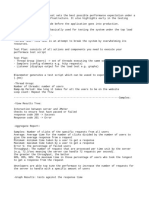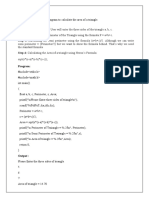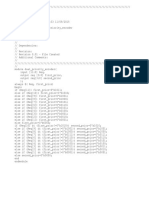0% found this document useful (0 votes)
6 views2 pagesStatic Arrays
This document introduces students to static arrays and basic operations, including declaration, initialization, and traversal using loops. It demonstrates how to calculate the sum, maximum, and minimum of array elements while emphasizing the importance of staying within array bounds to avoid undefined behavior. The activity is designed to take 15 minutes and includes practical examples in C programming.
Uploaded by
iniademola21Copyright
© © All Rights Reserved
We take content rights seriously. If you suspect this is your content, claim it here.
Available Formats
Download as TXT, PDF, TXT or read online on Scribd
0% found this document useful (0 votes)
6 views2 pagesStatic Arrays
This document introduces students to static arrays and basic operations, including declaration, initialization, and traversal using loops. It demonstrates how to calculate the sum, maximum, and minimum of array elements while emphasizing the importance of staying within array bounds to avoid undefined behavior. The activity is designed to take 15 minutes and includes practical examples in C programming.
Uploaded by
iniademola21Copyright
© © All Rights Reserved
We take content rights seriously. If you suspect this is your content, claim it here.
Available Formats
Download as TXT, PDF, TXT or read online on Scribd
/ 2






